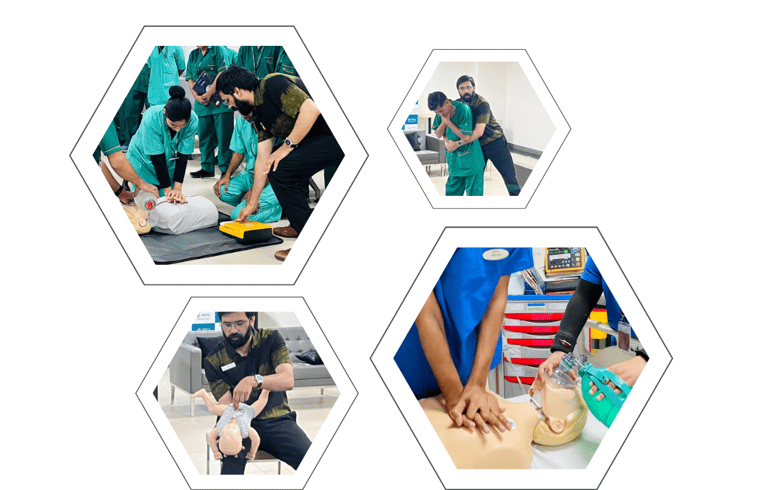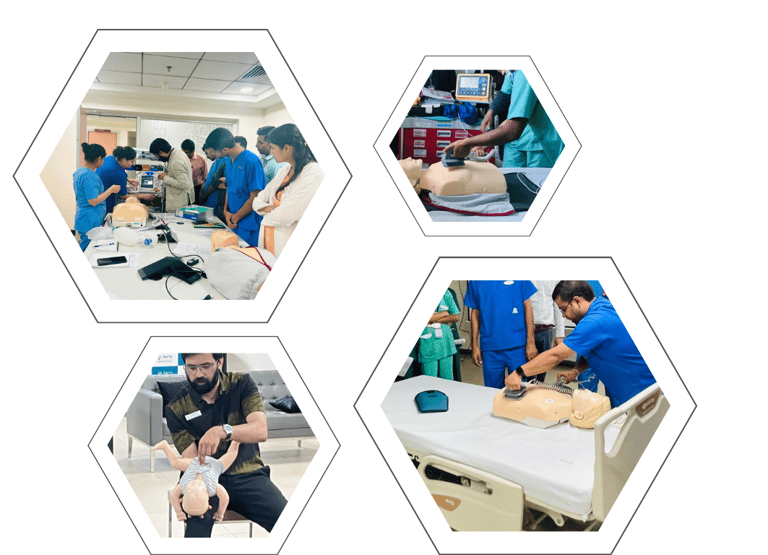
Advanced Cardiac Life Support (ACLS) Training
Overview
A comprehensive course designed to provide healthcare professionals with the knowledge and skills necessary to manage patients experiencing severe cardiovascular emergencies. This course emphasizes team dynamics, high-quality CPR, airway management, and the use of pharmacological and electrical therapies to enhance patient outcomes during critical moments.


Target Audience
Physicians
RMO/SMO/Clinical Coordinators
Paramedics and EMTs
Respiratory Therapists
ICU/ER/OT/HDU Staff
Ward Nurses
Medical and nursing students
Topics Covered
Foundational Concepts of ACLS
Overview of ACLS algorithms and guidelines
Understanding the Chain of Survival
Importance of early intervention and teamwork in cardiac emergencies
Basic Life Support (BLS) Review
Hands-on high-quality CPR techniques (chest compressions and ventilation)
Use of Automated External Defibrillator (AED)
Recognizing cardiac arrest and initiating BLS
Airway Management & Ventilation
Securing the airway – Bag-mask ventilation and advanced airway devices
Use of supraglottic devices and endotracheal intubation
Identifying and managing respiratory arrest
Management of Cardiac Arrest and Arrhythmias
Cardiac arrest algorithms (Asystole, Pulseless Electrical Activity (PEA), and Ventricular Fibrillation)
Use of defibrillators – Monophasic vs. biphasic
Recognizing and managing bradycardia and tachycardia with a pulse
Electrical therapies – Cardioversion, defibrillation, and pacing
Pharmacology in ACLS
Common drugs used in ACLS (e.g., epinephrine, amiodarone, atropine)
Dosing, indications, and contraindications of resuscitation medications
Safe administration techniques during resuscitation efforts
Team Dynamics and Leadership in Resuscitation
Roles and responsibilities during code situations
Communication strategies and closed-loop communication
Effective team management – Pit crew model
Recognition and Management of Peri-Arrest Conditions
Acute Coronary Syndromes (ACS) – Recognition and initial management
Stroke protocols – FAST assessment and thrombolysis window
Post-cardiac arrest care – Return of spontaneous circulation (ROSC) management
Certification
NRE ACLS Certification, valid for 2 years
Duration
8 Hours


12-Lead ECG Interpretation
Identifying life-threatening arrhythmias and STEMI on ECG
Recognizing heart blocks and electrolyte imbalances through ECG patterns
Practical Case Simulations
Code blue scenarios – Role play and team drills
Managing cardiac arrest in various clinical settings
Handling multi-system emergencies requiring ACLS
Evaluation and Certification
Skill assessments – High-quality CPR, defibrillation, airway management, and drug administration
Written exam based on AHA guidelines
ACLS certification upon successful completion


